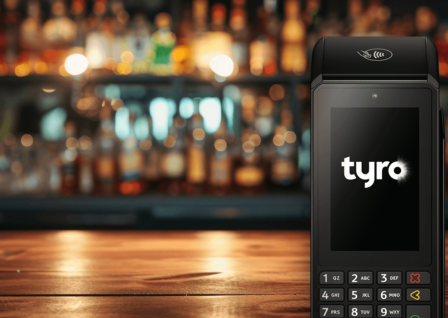Speed Up Payments in Pubs & Bars with Tyro’s Fast EFTPOS Solutions

25 January 2024 - 7 min read
Business Strategies

They say time flies, and it really does when you run a small business. End of financial year (EOFY) is just around the corner, which means it’s time to start getting things organised so you’re not frantically trying to pull everything together before the deadline.
We’ve done our research to bring you 12 tips for preparing your small business for EOFY. These will not only help you successfully complete this year’s financial duties but hopefully set you up to start the new financial year on the right foot.
Explore our end of financial year tips to ensure a smooth transition.
Having all your records in order is essential for a smooth EOFY process. So go ahead and compile the following small business accounting documents, to ensure they’re ready and accessible come tax time. You’ll need:
Bad debts are tax deductible when written off and can be used to offset your taxable income. So, if you’re still chasing invoices from the last financial year, now’s the time to write them off.
If a gentle reminder doesn’t do the trick; it might be worth offering the client a small discount if they pay before 30 June or providing some other incentive.
In the future, you might want to invest in accounting software that sends online invoices or automated reminders to customers that haven’t paid on time; that way, you may save the hassle (and loss) of customers’ failure to pay when they’re supposed to. Xero is a solid option that can do this; when integrated with the Tyro Bank Account and Tyro EFTPOS, it also enables seamless reconciliation and automatic bank transfers and payroll contributions— making it a powerful small business accounting tool.
In a similar vein, it’s important to make sure your own bills are accounted for. Hopefully your payments are already up to date but, as part of your EOFY preparation, you may need to finalise any invoices you’ve left to the last minute and also chase down invoices from contractors or clients who are slow to send them over to you.
As a small business, you can deduct the cost of carrying out business activities from your assessable income, to reduce how much tax you pay. Deductions can include cash expenses such as business supplies and services, as well as non-cash expenses like depreciation of your business assets. Finding out what tax deductions you can claim (and having the records to prove it) is an important part of EOFY preparation, as you don’t want to miss out on putting money back into your small business.
Discover what business deductions you can and can’t claim here.
When dealing with tax deductions, the golden rule is not to mix your personal bills with your business bills. While some at-home expenses can be charged against your business, it’s best to double-check these items with your tax advisor or the Australian Taxation Office (ATO).
Got a small business with an aggregated turnover of less than $5 million? Good news! You’re entitled to an income tax offset of up to $1000, and you don’t even have to apply for it. The ATO will work out the proportion of tax payable on your business income, which means you’ll need to make sure all your earnings are up to scratch when you lodge your tax return. Once your tax return has been processed, your offset amount will be shown on your notice of assessment. To be eligible for the income tax offset you’ll need to be operating as a sole trader, be in a partnership, or receive business income from a trust.
The Temporary Full Expensing (TFE) depreciation incentive replaced the instant asset write off from 6 October 2020 and there is no limit on the write off under TFE. The turnover threshold to be eligible for TFE is $5bn. Under TFE, second-hand assets can only be written off if the entity’s aggregated turnover is less than $50m.
Dig into the details of the scheme and check your eligibility here.
Learn more about instant asset write-off and Temporary Full Expensing (TFE) in our blog. Wanting to finance new equipment for your business that you can write it off? The Tyro Business Loan is a great solution.
If your small business has a turnover of less than $2 million, you’re eligible for a variety of tax benefits in areas such as Capital Gains Tax, Goods and Services Tax, Income Tax, and Fringe Benefits Tax. Make sure you know what tax benefits may be applicable to your small business, so you don’t miss out on a bonus. Check out the ATO’s website for more info.
When it comes to EOFY preparation, it’s important to keep an eye on any tax changes and compliance and taxation regulations that may kick off at the start of the financial year, that may affect your business structure (how your business does business) and how you conduct your small business accounting.
You can stay in the loop with industry regulation by regularly sweeping the ATO business website for news and announcements. Talking to a financial adviser, accountant, or bookkeeper can also help put you in a prime position to capitalise on any positive changes.
Got a business with superannuation guarantee obligations? Meeting your obligations before 30 June will allow you to claim a tax deduction in your income tax return this year, rather than waiting to claim deductions until the following year.
Employee super contributions aren’t tax deductible until they’ve been paid, so ensuring all contributions are completed by the end of the financial year is a great way to up retirement savings and reduce your income tax bill.
An essential part of EOFY preparation is knowing when your statements and reports are due. Make sure you don’t miss a deadline by popping important dates in your calendar. This will not only give you peace of mind that you’re on top of everything but help you avoid ATO penalties for submitting information late.
It’s worth looking into the latest small business support, to see if you can get any extra assistance this financial year. Head to the ATO’s support for businesses and employers webpage for the latest information on this area.
As a small business owner, it’s easy to want to manage every element of your business yourself, including the financials. But calling for backup is never a bad idea, especially when it comes to EOFY, as rushing the process could lead to mistakes that incur potential fines or mean that you miss out on benefits your business is eligible for. Hiring a financial adviser, accountant, bookkeeper or registered tax agent to support you through tax seasons this time can make things a lot easier and help lighten your load.
You don’t have to dread tax time. By following these EOFY preparation tips, you can tackle this business season with confidence, wrapping up this financial year and entering the next one smoothly and successfully.
Check out our small business EOFY checklist.
Interested in the Tyro and Xero Integration? Let’s discuss!
Disclaimer:
Tyro provides this article for general information and educational purposes and does not take into account the financial situation or needs of any reader. The information provided must not be relied upon as financial product advice. Taxation considerations are general and based on present taxation laws and may be subject to change. You should seek independent, professional tax advice before making any decision based on this information.
Tyro may from time to time provide links to other websites for information purposes. The inclusion of links does not imply endorsement or support by Tyro of any of the linked information, services, products, or providers. Tyro does not accept any responsibility for any errors, omissions or reliability of such content and any use thereof is solely at the user’s risk. Please undertake your own assessment before relying on it.
Xero is a trademark of Xero Limited.
You may also like
3 Jun 2025 - 2 min read
23 May 2025 - 3 min read
25 Nov 2024 - 3 min read
5 Sep 2024 - 0 min read
Australian-based 24/7 support